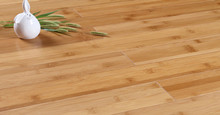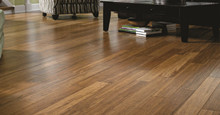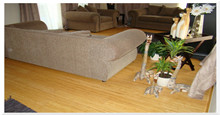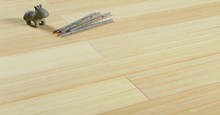Bamboo flooring is steadily gaining attention in Brazil as a sustainable and stylish alternative to traditional wood floors. With the country’s rich tradition in hardwood production and a growing awareness of environmental responsibility, bamboo is carving out its place in both residential and commercial projects. Buyers are seeking not just appearance but performance, durability, and trust in suppliers.
This blog takes a closer look at Brazil’s bamboo flooring landscape—covering the major suppliers, available types, warranty standards, pricing, and what customers are saying about the quality.
Bamboo Flooring in Brazil: An Overview
Brazil is globally recognized for its hardwood exports, but bamboo offers a different kind of value. As a rapidly renewable resource, bamboo grows faster than native hardwoods, and when manufactured properly, it can be just as hard—if not harder—than many Brazilian species such as Jatobá or Cumaru.
In recent years, bamboo has attracted architects, interior designers, and eco-conscious homeowners seeking more sustainable flooring options that still deliver on strength and elegance.
Leading Suppliers and Distributors in Brazil
While bamboo flooring is not yet as widespread as hardwood in Brazil, several companies stand out as key players in the import, distribution, and manufacturing of bamboo flooring products.
1. Pisos de Bambu (S?o Paulo)
Overview: One of the most established bamboo flooring brands in Brazil, offering a range of solid and engineered bamboo products.
Product Sourcing: Imports strand-woven bamboo from Asia, particularly China, and custom finishes it locally.
Customer Base: Serves both residential and commercial markets, including luxury apartments, offices, and retail stores.
2. GreenWood Brasil (Curitiba)
Specialty: Focuses on environmentally friendly flooring, including FSC-certified bamboo.
Distribution: Supplies through a network of partner stores and architects across southern and southeastern Brazil.
Reputation: Known for high-quality finishes and attention to moisture resistance, particularly important in Brazil’s humid regions.
3. Bambuzeria (Rio de Janeiro)
Unique Approach: Offers both bamboo flooring and custom bamboo furniture.
Design Focus: Works closely with interior designers to deliver tailored bamboo flooring solutions with natural finishes.
Clientele: Popular in coastal and boutique residential projects.
Available Bamboo Flooring Types in Brazil
The Brazilian market offers a decent variety of bamboo flooring types, though not as extensive as in North America or Europe. The most common types include:
1. Strand-Woven Bamboo
Durability: The hardest and most durable option, often with a Janka rating above 3,000.
Finish: Available in matte, satin, or high-gloss finishes, with natural, carbonized, and stained color options.
Installation: Offered in both click-lock and tongue-and-groove systems.
2. Horizontal and Vertical Bamboo Planks
Construction: Made from strips of bamboo either stacked horizontally or vertically to create different visual textures.
Aesthetic Appeal: Showcases the natural bamboo grain and knuckles.
Use Case: Preferred in spaces where a more organic, Asian-inspired design is desired.
3. Engineered Bamboo
Structure: Bamboo veneer over a plywood or HDF core.
Benefits: Better dimensional stability, especially in regions with humidity fluctuations like the Amazon basin or coastal areas.
Availability: Growing in popularity but still limited in some regions.
Quality and Warranty Standards
Brazilian consumers are increasingly demanding transparency and durability when it comes to flooring. As a result, reputable bamboo flooring suppliers in Brazil are offering:
Warranty Periods: Typically range from 10 to 25 years for residential use, and 5 to 10 years for commercial settings.
Moisture Resistance: Many strand-woven types are treated with anti-moisture coatings to perform better in humid environments.
Certifications: Top-tier suppliers offer bamboo flooring with FSC certification, CARB2 compliance, and low-VOC finishes.
Installers and retailers often emphasize the importance of proper subfloor preparation and acclimation, especially in Brazil’s diverse climate zones, to avoid expansion or warping.
Price Range: What to Expect
Prices for bamboo flooring in Brazil vary depending on product type, finish, and whether the materials are imported or finished locally. Here‘s a general breakdown:
Type of Bamboo Flooring Price Range (R$ per m2) Notes
Strand-Woven Bamboo R$ 180 – R$ 350 Most durable, best for high-traffic areas
Horizontal/Vertical Bamboo R$ 140 – R$ 280 Natural look, slightly softer
Engineered Bamboo R$ 200 – R$ 400 More stable, suitable for humid climates
Prices may increase with premium finishes, custom stains, or waterproofing treatments. Installation costs typically range from R$ 40 to R$ 70 per m2, depending on location and complexity.
Customer Feedback and Reviews
Feedback from Brazilian consumers and flooring professionals has been largely positive, especially for strand-woven bamboo. Here’s a summary of recurring themes from customer reviews:
Positive Points:
Visual Appeal: Customers praise the natural look and warm tones, especially in carbonized or natural matte finishes.
Durability: Strand-woven bamboo holds up well against foot traffic, pets, and furniture.
Eco-Conscious Choice: Many buyers cite environmental reasons for choosing bamboo over traditional hardwood.
Common Concerns:
Installation Sensitivity: Some users have experienced issues with expansion or cupping when installation instructions weren’t followed carefully.
Color Variation: Like many natural materials, there can be noticeable variation between boxes.
Availability: Certain finishes or colors may have longer lead times or limited stock, particularly in northern Brazil.
Final Thoughts on Brazil’s Bamboo Flooring Scene
Bamboo flooring is earning its place in Brazil’s flooring market with a combination of strength, sustainability, and modern aesthetics. While still emerging compared to hardwood, it is gaining momentum, especially in urban centers like S?o Paulo, Rio de Janeiro, and Curitiba.
With a small but growing network of reliable suppliers, expanding product options, and increasing consumer awareness, bamboo is likely to continue rising as a smart flooring choice across Brazil’s residential and commercial spaces. For flooring industry professionals, it’s an exciting category to watch—and contribute to—as demand for sustainable solutions continues to grow.



